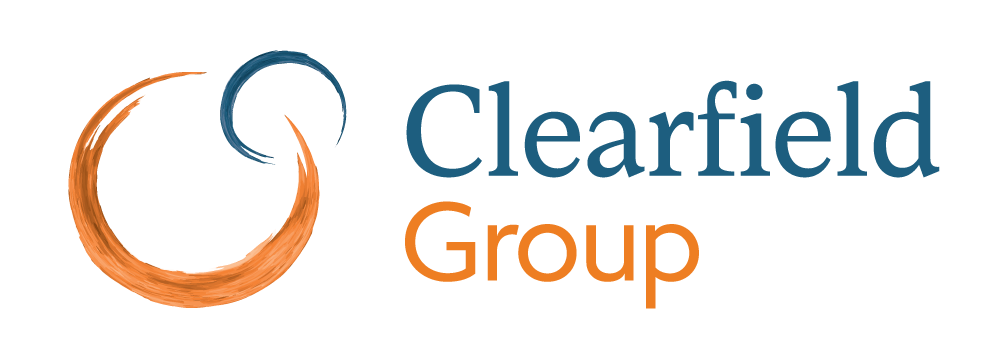“I don’t know.”
It’s taken me a long time to learn to say that phrase.
Not literally, of course (all the words are straightforward!)
And not about minor things, either; I’ve always been good at the artful dodge: “Hmm, that’s an interesting question. I don’t know, but I’ll do some research and get back to you.”
It’s taken me a long time to inhabit the space of profound not knowing.
I managed to step into that space last summer and, in a meeting with an important client, admit that I didn’t know how to solve the problem we were working on.
It was terrifying.
I had a lot of anxiety because my client (a team of senior engineers at a very successful global company) had brought me in to support them as they worked on a sprawling, complex problem.
And I was struggling. I understood parts of their work and, logically, their path forward made sense.
But the engineers I was working with (who understood that they had a complex problem) kept asking me what I thought they should do. I reflected on my work with other companies that had solved similar issues and drew on our research from Meltdown — but I didn’t feel like my answers were having an impact.
Then about halfway through our work, I realized that my job wasn’t to know the answer.
It wasn’t to tell them about how a different organization had solved a big, complex problem.
Instead, my job was to help them realize that they didn’t have to know the answer either.
Why? I’ll get to that, but first, it’s worth acknowledging how hard it is to admit that we don’t know the answer.
The space of not knowing is elusive because we spend so much time answering questions.
“How do you…”
“What do you think about my idea to…”
“What are you going to do next…”
“What’s your plan for…”
Questions are great, but these questions harbor the assumption that there is, in fact, an answer. That the world is simple enough, linear enough, that it’s helpful to know something.
We’re asked to answer these kinds of questions our whole lives, from teachers, colleagues, bosses. And we learn that, by giving answers, we get praised, promoted, and rewarded.
As we deepen our expertise, we rely on our ability to answer so much that we can’t leave it behind.
To be clear: I have nothing against expertise. Or answers!
But these days, the most critical questions are the ones that experts can’t answer.
That’s because most answers can’t be separated from the people involved in the problem.
When we want something to change, when we want our teams to work together differently, even when we want to adopt a new piece of technology, we can do none of that without the people involved changing their behavior.
But people behave as they do because something is useful about their behavior. For example, if we’re quick to anger, that might make us feel safe by getting others to stay clear. If we tend to fade away during discussions, that might make us feel safe, too: if people don’t notice us, we can avoid scrutiny.
The same is true with organizations and teams. Bureaucratic organizations get something from their bureaucracy (a sense of certainty and control, perhaps). Chaotic organizations do as well (a sense of freedom, creativity, and busyness).
When we ground our work on a problem in the benefits that we, our teams, and our organizations get from the current behavior, we make it safe to experiment.
Say that we want to encourage people to be less bureaucratic. How might we (for example) ensure that leaders feel like things are being done safely even as we reduce the complexity of our procedures? What if we…?
How might we add structure to preserve our creative abilities while reducing the time people waste time in chaos? What if we…?
These are questions – but they’re very different kinds of questions. They’re questions that lead to experiments, to a series of things that we might want to try.
When we think in this way, it transforms what the word “answer” even means.
Answers stop living in the text of an email or the thesis of a strategy document. They stop being “should” statements, i.e., “I think we should…”
Instead, answers become rooted in action.
Answers are the results of things that we try, whether or not we got what we expected.
“Oh, that worked! Let’s do more of that.”
Or “Oh, no way. That was a mess. What do we want to try next?”
When I admitted to the engineers and my client that I didn’t know the answer, it was like the whole room took a breath.
I started our meeting by saying, “I don’t know the answer. And – even if for some reason I did know it, you guys wouldn’t believe me. A few of you have been doing this kind of work for longer than I’ve been alive.”
“I’ve been feeling this pressure to give you an answer, which makes me wonder — do you all feel that pressure, too? Do you feel like your job is to know the answer?”
They did. And acknowledging that shifted our whole work together.
Instead of trying to find an answer, we started to think in terms of experiments. How might we…? What do we want to try next?
And that changed everything.
So, dear reader, what’s a problem you’re trying to answer where you might experiment instead? Comment and let me know.
Ps: The free preview of Crossing Thresholds, the course I’ve been writing about, was last week. I found it just as powerful as it was when I took it the first time, and I am soooo excited to be enrolled in the full course.
If you’re interested in moving toward the unknown and crossing your own threshold, but you missed the chance, don’t fret (maybe procrastination is a behavior that you’re interested in letting go of…?):
Watch the recording of the free preview and sign up here for the full course, which takes place on September 21, 28 and October 5 & 12 from 10 AM–1 PM Pacific Time each Tuesday.
ps: I mentioned this before, but I’m an affiliate for Amba’s course. That means I’ll get a commission if you sign up for the full course. I’ll never promote any work I don’t believe in — and in this case, I’m paying for the course, too, so I’ll be taking it right there beside you.
Want to get these articles in your inbox? Subscribe here to join the conversation and download a sample from Meltdown.

